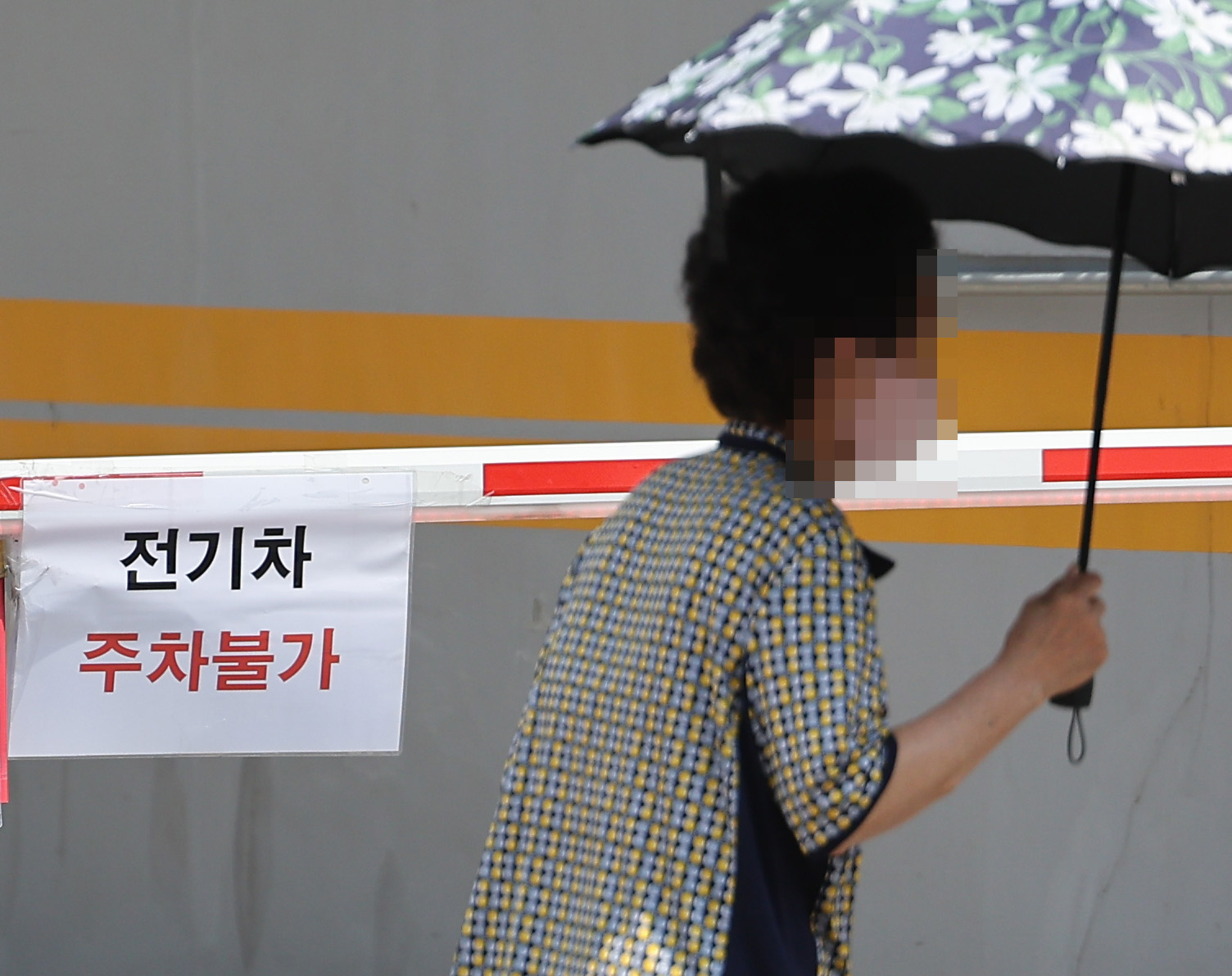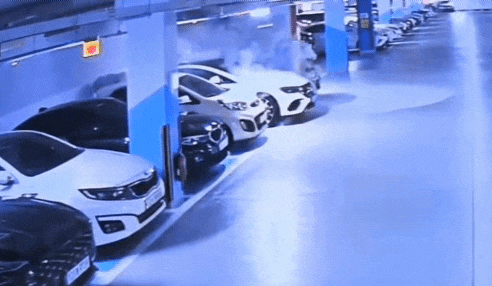In an attempt to quell mounting fears over EV safety, the Seoul Metropolitan Government came up with a guideline that added to public frustration: EVs should not be charged over 90 percent to enter underground parking garages.
The countermeasure is drawing much backlash from both the public and experts, calling the policy a stopgap rule that is impractical and can’t fundamentally resolve the issue.

EV owners are perplexed by the rule, as the Mercedes EV that exploded in an underground parking lot in Incheon on Aug. 1 was neither charging nor fully charged when the blaze erupted.
After the EV burst into flames, 880 nearby vehicles were damaged and some 1,600 households suffered weeklong electricity and water supply outages.
The charging cycle of lithium-ion batteries isn’t the crux of the matter, experts say, considering the design details of EVs.
“Excessive charging isn’t the governing factor with a fire,” said Professor Yoon Won-sub, who teaches energy science at Sungkyunkwan University. Yoon also heads a battery-dedicated research center jointly run by the university and Samsung SDI.
“EVs, from the start, are designed to never reach a full charge, even if the dashboard says they are 100 percent,” Yoon said. “It’s an unproven argument that batteries carry a higher fire risk when fully charged.”
The cathode material of nickel cobalt manganese (NCM) batteries possesses a maximum theoretical 275 milliampere-hour (mAh) capacity, while only up to 210 mAh is generally used in electric vehicles.
And this threshold is what auto manufacturers classify as “100 percent charged” when designing their EVs.
In other words, auto manufacturers normally design EVs to show a full charge even when the car has some five percent capacity remaining.
“We call this difference in the charging rate the ‘margin’ in setting up the car’s durability,” said a source in the automotive industry. “It is similar to a smartphone offering ‘battery protection mode’ that allows it to be charged up to 80 percent but shows that it is fully charged.”
In fact, of a total of 139 EV fires over the last three years in Korea, only 26 cases happened during charging. A total of 68 cases occurred while driving while 36 cases were from parked cars, according to data from the National Fire Agency.
“It seems a bit like a ‘witch hunt’ blocking EV owners with cars charged 90 percent from entering underground parking lots,” Yoon said. “It’s essential to come up with suitable countermeasures after a thorough discussion among experts.”

Infringement on property rights
Some EV owners are furious with the policy, arguing that such a measure infringes on people’s property rights.
Limiting charging means a reduction in the maximum mileage the car can run per single charge, which is one of the biggest factors in the purchase of an EV.
For instance, a Tesla Model Y can run around 350 kilometers (217 miles) per single charge based on the Ministry of Environment’s certification. Under EV design logic, the car can actually travel around 332 kilometers even if it says it is fully charged.
With the 80 percent rule, this means a Model Y owner can run only up to 256 kilometers per single charge.
“If gasoline-powered cars catch fire, will the government limit fueling to 90 percent?” a Tesla Model Y owner in Incheon wrote in an online community representing over 1 million EV owners in Korea.
“I can’t understand how the government came up with such numbers like 80 and 90 percent; based on what proven data?” it read. “If it’s that dangerous, why has the government encouraged people to buy EVs in the first place?”
Their anger rose further with the confirmation that the burned-out Mercedes EQE sedan was not charging when the fire started. The exact cause of the blaze has not yet been determined.
The government, led by the Environment Ministry, aims to announce a set of strengthened guidelines in early September. Various measures have reportedly been brought up including the charging limitation, graded subsidies and the disclosure of battery details by EV makers.
BY SARAH CHEA [chea.sarah@joongang.co.kr]



